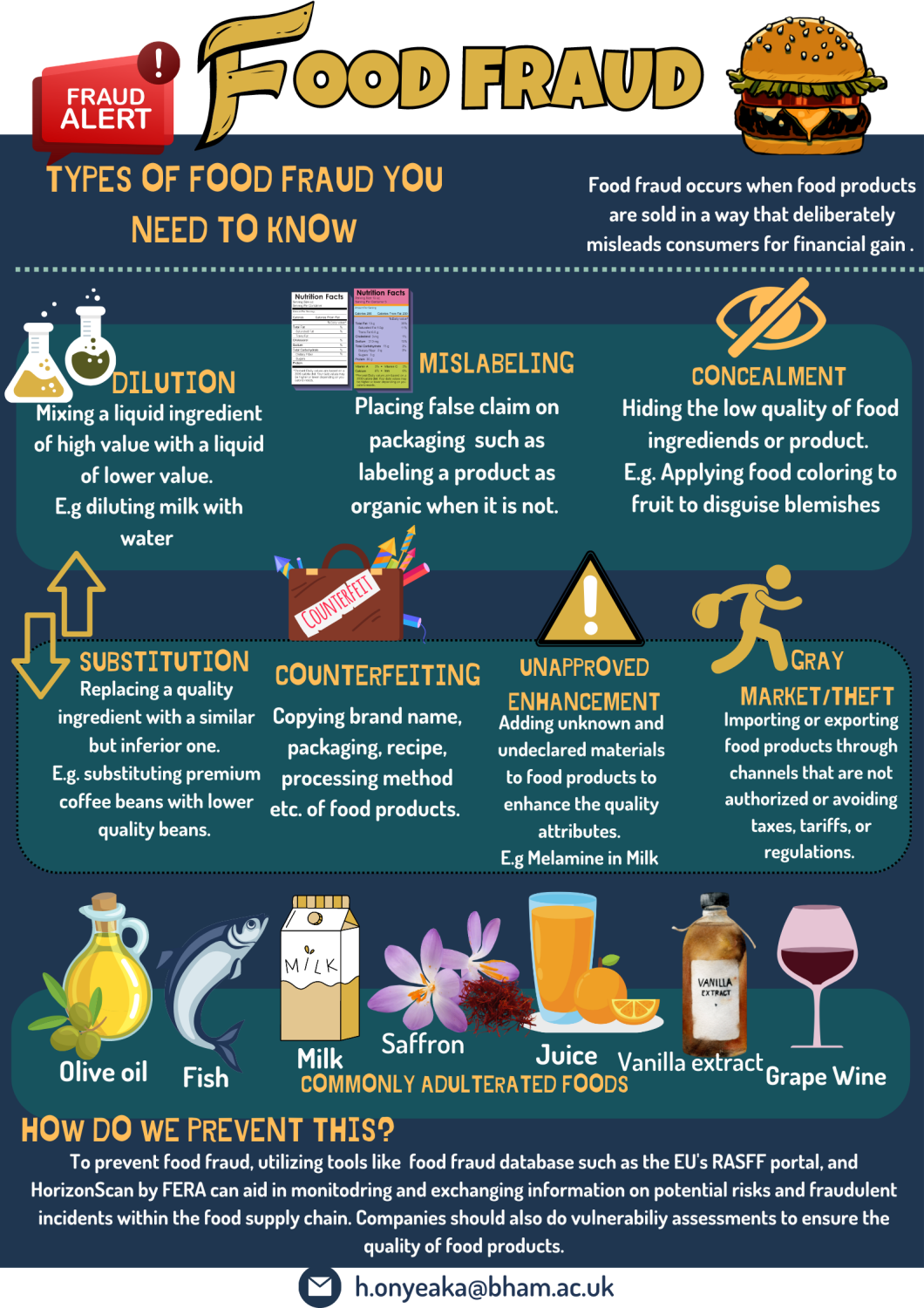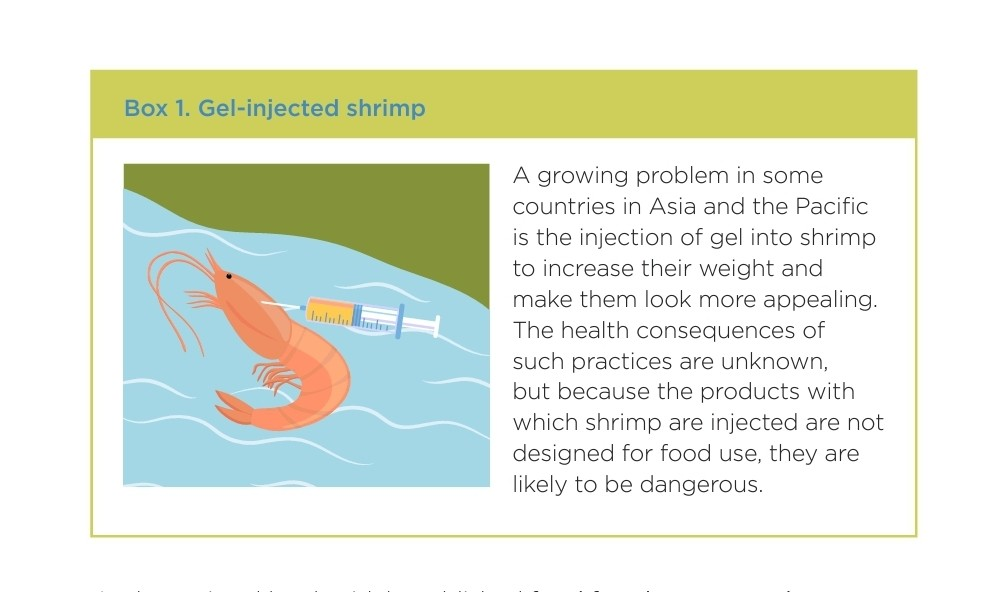A World Without Food Regulation
The human race would have been wiped out if the food industry was not regulated. Think about it. 🤔 The thought of a world without food regulation makes me shudder because how else would food safety and quality be enforced in a world where financial gain overrides respect for human lives?
All over the world, the food industry (especially food manufacturing) is heavily regulated. In Nigeria for instance, we have the Federal Ministry of Agriculture, Federal Ministry of Health, National Agency for Food and Drug Administration and Control (NAFDAC), Standards Organization of Nigeria (SON), Federal Competition and Consumer Protection Comission (FCCPC), among others. These regulatory agencies are involved during the development stages of a new food product for approval and acceptance before entrance into the Nigerian market.
 Click Here to Join the Over 2700 Students Taking our Highly Rated Courses on Quality Assurance/Quality Control, Food Safety, Lean Six Sigma, Lean Manufacturing, Six Sigma, ISO 9001, ISO 14001, ISO 22000, ISO 45001, FSSC 22000, Product Development etc. on UDEMY.
Click Here to Join the Over 2700 Students Taking our Highly Rated Courses on Quality Assurance/Quality Control, Food Safety, Lean Six Sigma, Lean Manufacturing, Six Sigma, ISO 9001, ISO 14001, ISO 22000, ISO 45001, FSSC 22000, Product Development etc. on UDEMY.
With all the regulations that exist in the food industry globally, the industry is still vulnerable to fraud. Daily, unsuspecting food consumers like you and I are exposed to different types of food fraud activities some of which may be unsafe to our health.
Financial gain or profit is the motive behind food fraud. However, it may present food safety concerns which translate to health risks in the short or long term. It is fraudulent to exert undue advantage on people's finance by giving them less than their money's worth.

Image Credit: Food and Agriculture Organisation (FAO)

Image Credit: Dr Helen Onyeaka, PhD
 Click Here to Join the Over 2700 Students Taking our Highly Rated Courses on Quality Assurance/Quality Control, Food Safety, Lean Six Sigma, Lean Manufacturing, Six Sigma, ISO 9001, ISO 14001, ISO 22000, ISO 45001, FSSC 22000, Product Development etc. on UDEMY.
Click Here to Join the Over 2700 Students Taking our Highly Rated Courses on Quality Assurance/Quality Control, Food Safety, Lean Six Sigma, Lean Manufacturing, Six Sigma, ISO 9001, ISO 14001, ISO 22000, ISO 45001, FSSC 22000, Product Development etc. on UDEMY.
I love this poster 👆 from Dr Helen Onyeaka, FIFST, FHEA which explains Types of Food Fraud You Need to Know. Take a look at it.
Food fraud is not far-fetched, we are exposed to it almost on a daily basis.
- The other day, someone posted a video on Facebook showing lumps of sugar crystals settled in a bottle of honey she bought from a supermarket. That is adulteration right there.
- I recently read from a Food and Agriculture Organisation (FAO) technical toolkit about the increasing concern of injection of gel into shrimps in Asia to increase their weight and make them appear appealing. This act is unapproved enhancement.

Image Credit: Food and Agriculture Organisation (FAO) Technical Toolkit
- Some retailers tamper with best before and expiry dates that are around the corner to prevent themselves from incurring losses as consumers wouldn't ideally want to buy any product that is past the best before and expiry date. This act is tampering and mislabelling.
- I remember buying a cocoa beverage product from a popular brand and finding something else inside. Yes it was a cocoa beverage inside quite alright but I was 100% sure this was not the same product I have consumed over and over again. That product was counterfeited!
- The 2013 Horse meat scandal in parts of Europe had consumers buying undeclared horse meat as beef. This is similar to sale of refined palm oil as olive oil, sale of other fish species as cod, etc. This is an act of misrepresentation.
We could go on and on because the list is a long one and food fraud seems to take on a different dimension everyday.
 Click Here to Join the Over 2700 Students Taking our Highly Rated Courses on Quality Assurance/Quality Control, Food Safety, Lean Six Sigma, Lean Manufacturing, Six Sigma, ISO 9001, ISO 14001, ISO 22000, ISO 45001, FSSC 22000, Product Development etc. on UDEMY.
Click Here to Join the Over 2700 Students Taking our Highly Rated Courses on Quality Assurance/Quality Control, Food Safety, Lean Six Sigma, Lean Manufacturing, Six Sigma, ISO 9001, ISO 14001, ISO 22000, ISO 45001, FSSC 22000, Product Development etc. on UDEMY.
About the Author
Chidinma Ezinne Ochulor is a certified Food Technologist, a quality assurance professional with over 3 years' experience. She is a professional member of the Nigerian Institute of Food Science and Technology (NIFST). Reach her on LinkedIn, here.
